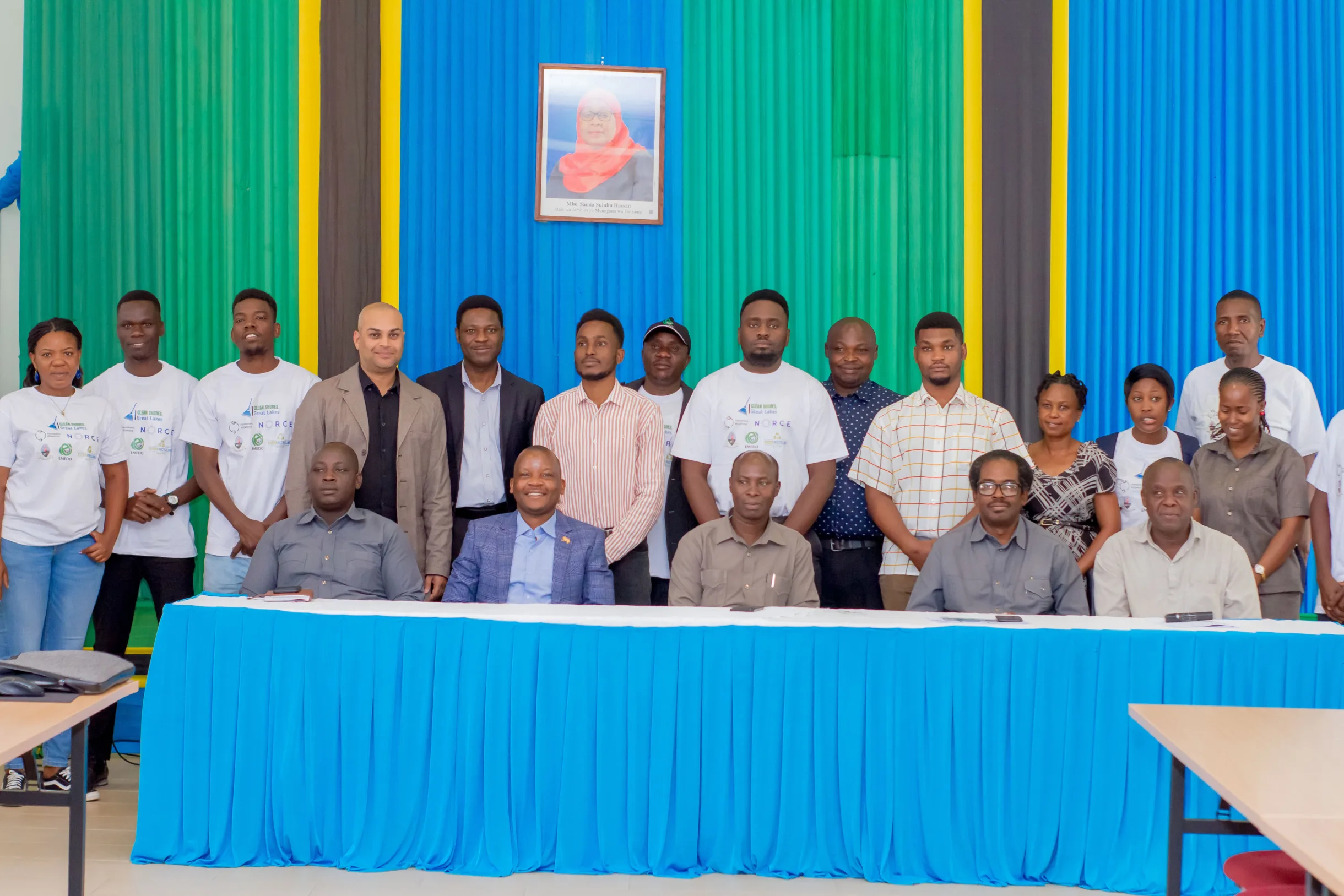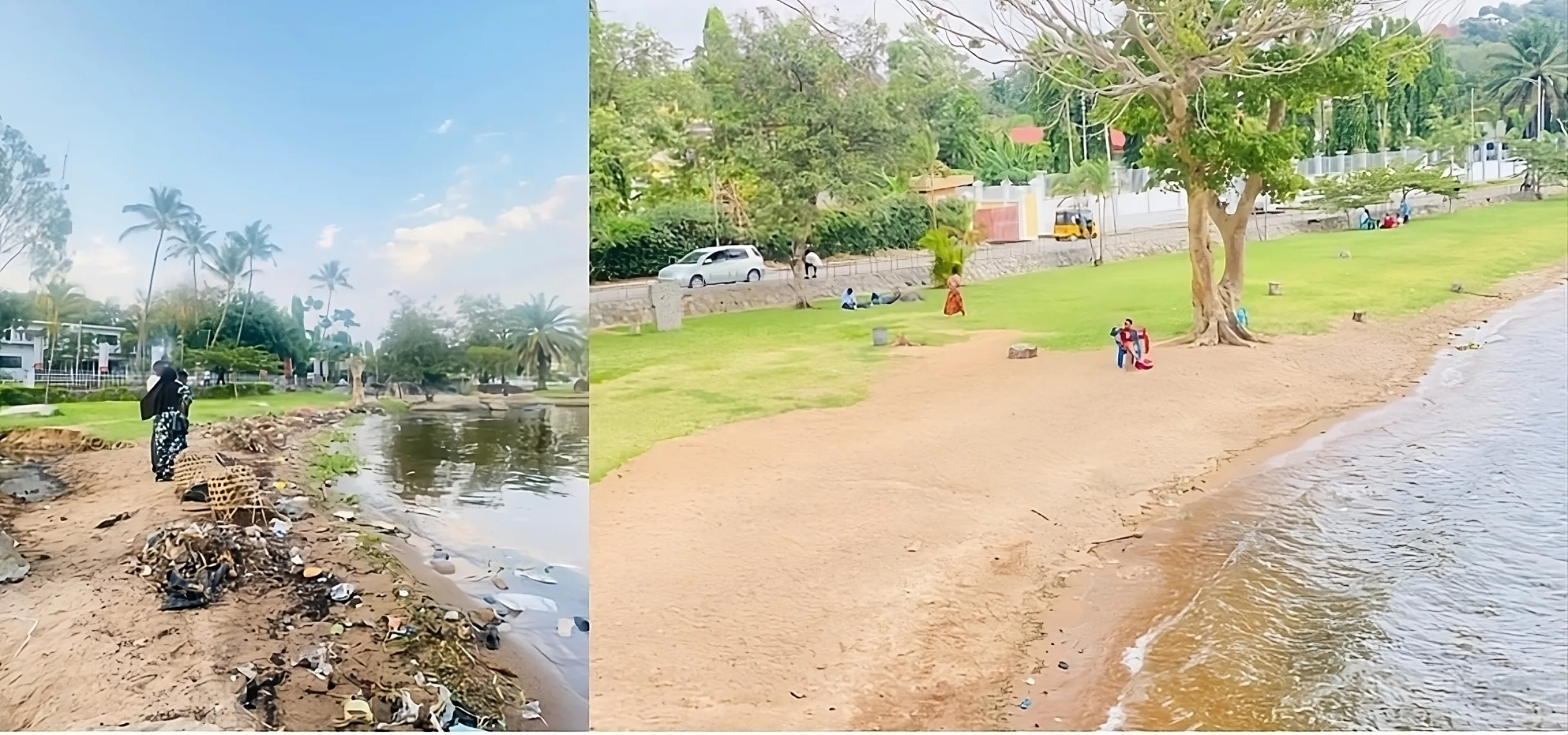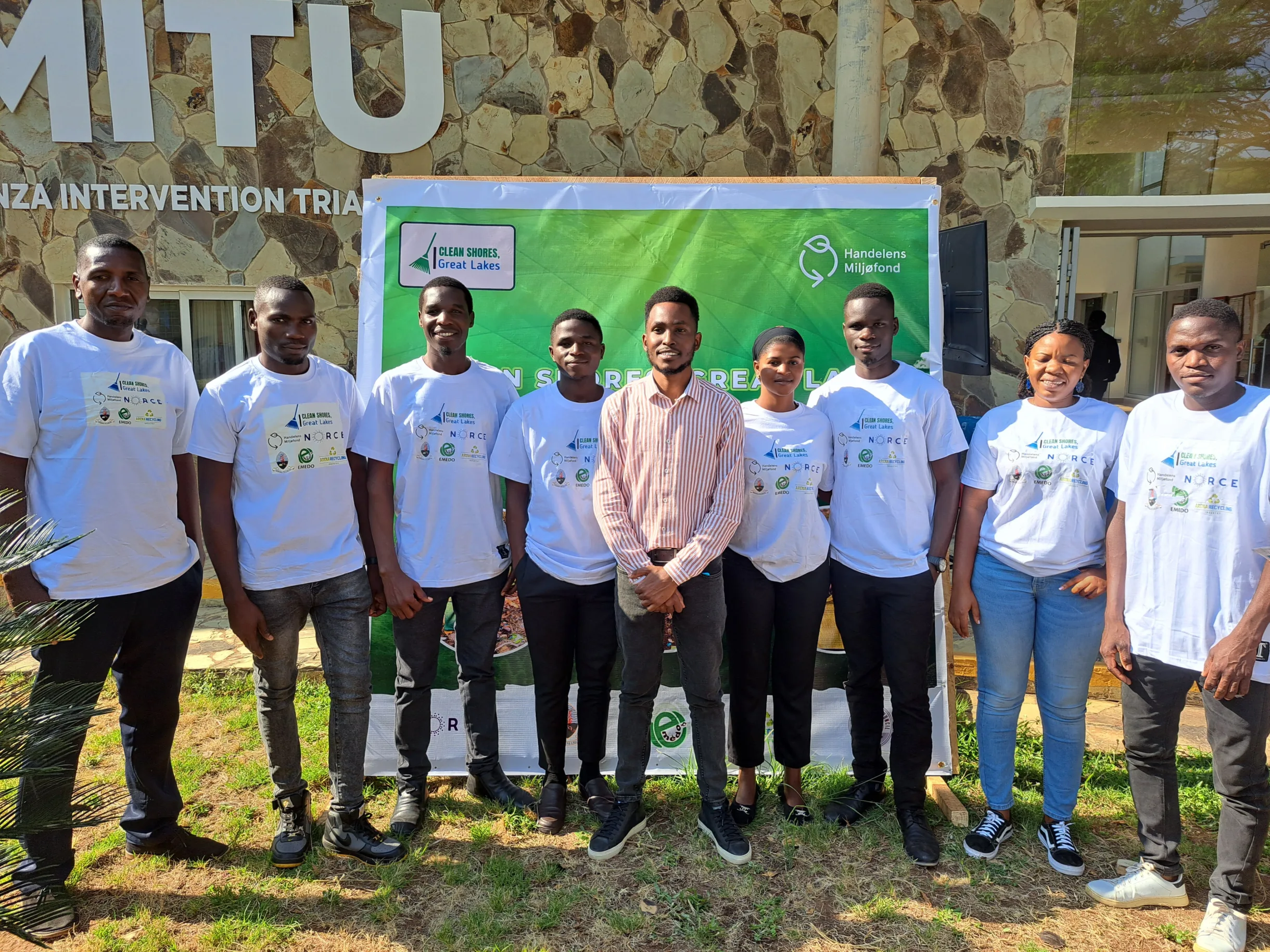Clean Shores Great Lakes Dissemination Workshop
Published: 23.09.2023
Updated: 24.09.2023
Farhan Khan
Senior Researcher
September 14 2023. Clean Shores, Great Lakes hosted our project's Dissemination Workshop to share our findings and instigate change within the African Great Lakes.

A key objective of the Clean Shores, Great Lakes project has been to collect data from our clean-ups and then to disseminate data-driven information and recommendations to local, regional and national policy makers. The aim being to raise awareness of the problem of litter along the shores of the African Great Lakes, and particularly the threats posed by plastic litter – by far the most abundant category of waste (75%).
Towards the end of our second campaign with 68 clean-ups conducted, we hosted our Dissemination Workshop at the MITU Conference Hall located in the grounds of the National Institute for Medical Research in Mwanza close to Lake Victoria. A diverse group of interested parties attended the meeting including:
- Government Departments (e.g., Ministry of Fisheries and the Office of the Environment)
- Lake Victoria Region Local Authorities Cooperation (LVRAC) an umbrella organisation for municipal policy makers
- Mayoral representatives of Mwanza City where the majority of our clean-ups have been held, and the neighbouring districts of Buchosa, Sengerema, Muleba and Misungwi which have heard about the campaign and wish to partner with us in the future
- Academics from within Tanzania from the University of Dar es Salaam (UDSM) and Catholic University of Health and Allied Sciences (CUHAS), and an international speaker from Cape Peninsula University of Technology (CPUT)
- Affected communities – Fisheries workers and union representative
- Handelensmiljofond – project funders joined from Norway
- PETPro Tanzania – Extended Producer Responsibility PET bottle recycling company
- Organisations that partnered with us during clean-ups such as the Scouts
- Organisations with whom we have a close working relationship in plastic pollution – Tanzania Explorer
- Local and national media – the meeting was featured across the Tanzanian media
- And the project partners – NORCE, University of Dar es Salaam, ARENA recycling, EMEDO

Speakers: Top row: Mr Emily Kasagara (Acting Regional Administrative Secretary), Mr Zagalo Emnauel (ARENA Recycling), Mr Laurent Kitogo (EMEDO), Mr Bahati Mayoma (UDSM), Dr Farhan Khan (NORCE). Bottom row: Dr Conrad Sparks (CPUT), Ms Veronica Donald (Tanzania Explorer), Prof. Jeremiah Seni (CUHAS), and moderators: Mr Billy Brown (LVRAC) and Dr. Samwel Limbu (UDSM)
Mr. Emily Kasagara, Regional Administrative Secretary for Mwanza, delivered a welcome address emphasizing the need for decisive actions to control plastic waste on the shores of the Great Lakes. His words, spoken in Swahili "Hatua madhubuti zinahitaji kudhibiti taka za plastiki katika fukwe za Maziwa Makuu" translated to "Decisive steps are needed to control plastic waste on the shores of the Great Lakes."
Mr Bahati Mayoma (University of Dar es Salaam) then introduced the Clean Shores, Great Lakes project, its aims, scope and implementation. Starting with how our study in 2015 finding microplastics in fish from Lake Victoria started the concern about plastics in the region, through our previous clean efforts, that have grown into Clean Shores, Great Lakes. Bahati touched on the areas of the project that are especially important, community training of citizen scientists, schools outreach, promoting circular economy and of course the clean-ups themselves. The themes of community engagement and circularity were followed up by Zagalo Emanauel and Laurent Kitogo from ARENA recycling and EMEDO, respectively. Dr Farhan Khan (NORCE) then went through the key findings of the project.
- 68 Clean-ups, >5000 volunteers, 688602 m2 of African Great Lake shoreline, > 25000 kg of litter collected, >420000 items of litter collected.
- Plastics are the major litter type – 75% of all waste
- Plastic bottles and bags make up 40% of all litter.
- Most identified brands related to bottles and/or food packaging.
- 3 manufacturers make up 60% of identifiable waste
- Sites related to fishing activities are 'hotspots' of plastic litter along with ports and markets.

Impact of clean up at Kamanga Gardens, Mwanza
Following this was the first planned Discussion session of the day “Targeted strategies for mitigation based on Clean Shores, Great Lakes' findings – discussion with stakeholders” moderated by Mr Billy Brown (LVRAC). With the audience now fully understanding of the scale of plastic litter problem across the Great Lakes, this was lively discussion with the stakeholder groups asking about the project and the data. Such a dataset had not been amassed within the Great Lakes area previously and thus the value of our work was made clear. Activities to curb the presence of litter, especially plastics, were proposed.
In the afternoon session, we were joined by our funders Handelensmiljofond by Zoom to present on the “Roles and scope of international funding” and our close friends at Tanzania Explorer, represented by Veronica Donald, who run a community-based programme for plastics circular economy in Dar es Salaam. Invited speakers Dr Conrad Sparks (CPUT, South Africa) and Prof. Jeremiah Seni (CUHAS) spoke on the issue of microplastics. Dr Sparks, an expert in microplastic research within Africa, spoke about “Microplastics in Africa: thoughts on mitigating impacts on the ecosystem and blue economy” whilst Prof Seni gave a thought provoking talk intertwining microplastics, human populations, and chemical and biological contaminants, “The influence of urban growth on the presence, levels and distribution of antimicrobial resistance, microplastics and heavy metal contamination in the Lake Victoria Basin”.

Clean Shores, Great Lakes team at the dissemination workshop
A second discussion session “Continuing to fight plastic pollution in the African Great Lakes” was moderated by Dr Samwel Limbu, Head of the School of Aquatic Sciences and Fisheries Technology (UDSM). With the audience now resolute in their determination to combat the problems of plastic pollution, Nicholaus Jackson (PETPro) said “As PETpro, we promise to work with the government and stakeholders to see how we can come up with a collaborative approach to ensuring the community is well engaged and the producers are playing a vital role in ensuring they are taking full responsibility for what they are producing.” Such a statement from the plastics community was most welcome.
It was a long day, with the meeting finishing as the sun began to set, but for it was evidently worthwhile for Clean Shores, Great Lakes and all of the attendees. We are delighted to have brought so many to our dissemination meeting and we look forward to working with all interested parties to solve the problem of plastics pollution in the African Great Lakes.